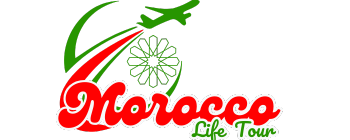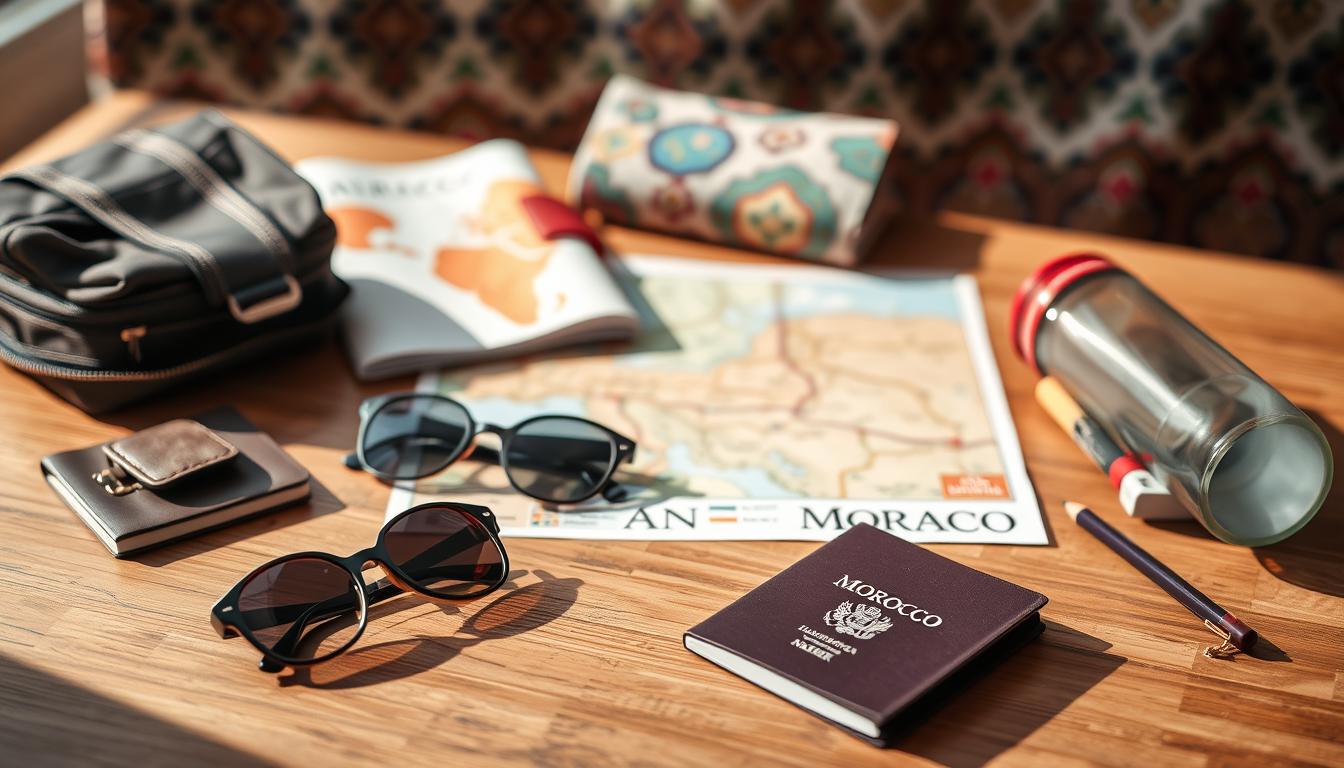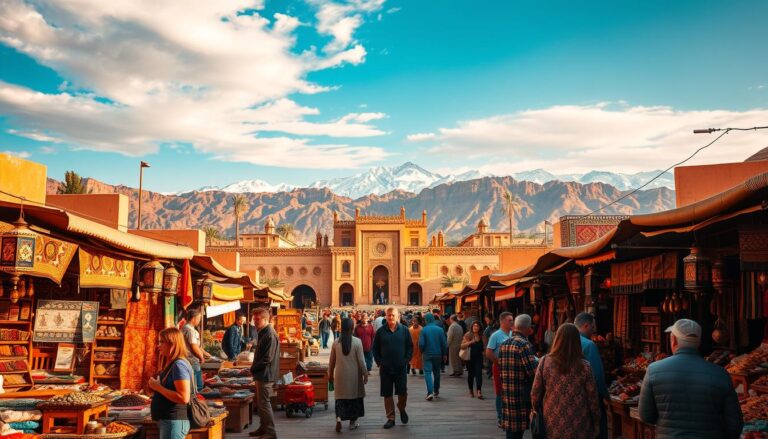What should I pack for a Trip to Morocco?
Embarking on a journey to Morocco can be an exhilarating experience, with its rich cultural heritage and breathtaking landscapes. To ensure a smooth and enjoyable trip, it’s crucial to be well-prepared with the right essentials.
Having the right items in your Morocco trip essentials list can make all the difference in navigating the bustling markets, exploring historic sites, and immersing yourself in the local culture. A well-planned packing list helps you stay organized and focused on the experiences that matter most.
Key Takeaways
- Understand the climate and cultural norms of Morocco
- Pack essential clothing and accessories for comfort and respect
- Include necessary documents and travel accessories
- Prepare for health and safety considerations
- Stay connected with the right electronics and adapters
Understanding Morocco’s Climate and Regions
Morocco, a country of diverse landscapes, experiences varied climatic conditions. From the coastal areas to the desert and mountains, the climate can differ significantly, making it essential to understand these variations when preparing for a trip.
Seasonal Weather Variations
Morocco’s climate varies not only by region but also by season. Understanding these seasonal changes is crucial for packing appropriately.
Summer (June-August) Essentials
During the summer, Morocco experiences hot temperatures, especially in the desert regions. Lightweight and breathable clothing is a must to stay cool.
Winter (November-February) Necessities
Winters in Morocco can be quite cool, especially in the mountains. It’s essential to pack warm clothing for visits during this time.
Spring and Fall Considerations
Spring and fall are considered ideal times to visit Morocco, with mild temperatures across most regions. These seasons require versatile clothing that can adapt to varying conditions.
Regional Climate Differences
Morocco’s diverse geography means that different regions have distinct climates. Understanding these regional differences is key to packing for Morocco’s climate.
Coastal Areas
The coastal regions tend to have a milder climate compared to the inland areas. Light layers are recommended for visits to these areas.
Desert Regions
The desert areas are known for their extreme heat during the day and cooler temperatures at night. Visitors should be prepared with appropriate desert gear.
Mountain Zones
The mountainous regions can be quite cold, especially during the winter months. It’s crucial to pack warm and waterproof clothing for these areas.
| Region | Season | Recommended Packing |
|---|---|---|
| Coastal | Summer | Light, breathable clothing |
| Desert | Winter | Warm layers, protective gear |
| Mountain | Spring/Fall | Versatile clothing, waterproof gear |
Essential Documents and Pre-Trip Preparations
Before embarking on your Moroccan adventure, it’s crucial to ensure you have all the necessary documents and preparations in place. A well-prepared traveler is a happy traveler, and this section will guide you through the essentials.
Required Travel Documents
Traveling to Morocco requires some specific documents. Ensuring you have these in order will make your entry into the country smooth and hassle-free.
Passport and Visa Requirements
First and foremost, your passport should be valid for at least six months beyond your planned departure date from Morocco. Depending on your nationality, you may need a visa. It’s essential to check with the Moroccan embassy or consulate in your home country to determine if you need a visa and what type is required.
Travel Insurance Documents
Having travel insurance is highly recommended. It covers unexpected medical or travel-related expenses, providing peace of mind during your trip. Ensure your policy covers Morocco and includes any activities you plan to engage in, such as desert treks or mountain hikes.
Copies and Digital Backups
Make copies of your important documents, such as your passport, visa (if required), and travel insurance documents. Leave a copy with a trusted friend or family member back home and consider digital backups by scanning these documents and storing them securely online or via a cloud service.
Money and Financial Considerations
Understanding the financial aspects of traveling to Morocco will help you manage your expenses better and avoid any unnecessary stress during your trip.
Currency and Exchange Tips
The local currency is the Moroccan Dirham (MAD). While some tourist areas may accept Euros or US Dollars, it’s best to exchange your money upon arrival or use ATMs to withdraw Dirhams. Be aware that currency exchange rates can fluctuate, so it’s a good idea to keep an eye on them before your trip.
Cards vs. Cash in Morocco
While many places in Morocco, especially in larger cities and tourist areas, accept credit and debit cards, cash is still king in many rural areas and traditional markets. Inform your bank of your travel plans to avoid any issues with your cards being flagged for suspicious activity.
Money Belts and Security
Using a money belt or a secure wallet can protect your valuables from pickpocketing, especially in crowded areas like markets and public transportation. Be mindful of your belongings and avoid displaying signs of wealth.
Clothing Essentials for Morocco
When traveling to Morocco, it’s vital to consider the local dress code to ensure a respectful and enjoyable trip. Morocco is known for its conservative culture, and dressing modestly is a sign of respect towards the local customs and traditions.
Respecting Local Culture Through Dress
Morocco’s cultural heritage is deeply rooted in its history and Islamic traditions. Dressing appropriately is not just a matter of personal choice but also a way to show respect for the local way of life.
Guidelines for Women Travelers
Women travelers should prioritize modest clothing that covers their shoulders and knees. Loose-fitting clothing is recommended, and it’s advisable to avoid revealing outfits, especially when visiting religious sites.
Guidelines for Men Travelers
Men are also expected to dress modestly, avoiding revealing clothing such as shorts and sleeveless shirts. Long pants and shirts that cover the shoulders are considered appropriate.
Religious Site Attire
When visiting mosques or other religious sites, both men and women should adhere to a more conservative dress code. This typically includes covering one’s head, shoulders, and knees as a sign of respect.
Everyday Clothing Recommendations
For everyday wear, it’s essential to strike a balance between comfort and modesty. Layering is a practical strategy, allowing travelers to adjust to different temperatures and social settings.
Layering Strategies
Using layers, travelers can easily adapt to Morocco’s varying climates, from the cool mornings and evenings to the warmer afternoons.
Fabric Choices for Comfort
Choosing the right fabrics is crucial for comfort. Natural fibers like cotton and linen are recommended for their breathability and comfort in Morocco’s climate.
Color Considerations
While Morocco is known for its vibrant colors, it’s advisable for travelers to dress in a way that blends in. Earth tones and muted colors are generally more appropriate.
Footwear for Various Activities
The right footwear can make a significant difference in the enjoyment of various activities, from city exploration to desert adventures.
City Walking Shoes
Comfortable walking shoes are a must for exploring Morocco’s cities, with their rich history and vibrant markets.
Terrain-Specific Options
For activities such as hiking or desert trekking, sturdy, terrain-specific footwear is essential. This helps in navigating challenging terrains safely.
By dressing thoughtfully and being mindful of Morocco’s cultural norms, travelers can ensure a more enjoyable and respectful experience in this beautiful country.
What Should I Pack for a Trip to Morocco’s Cities?
Morocco’s cities, with their rich history and culture, require a thoughtful packing list to ensure a smooth and enjoyable journey. From the vibrant streets of Marrakech to the historic alleys of Fez, each city offers a unique experience.
Urban Exploration Essentials
When exploring Morocco’s cities, having the right gear can make all the difference. Here are some essentials to consider:
Navigational Tools
A good map or GPS device is crucial for navigating the often labyrinthine medinas and streets. Consider downloading a reliable map app on your smartphone.
Day Bag Necessities
A comfortable daypack with essentials like water, snacks, and a first-aid kit can keep you energized and prepared throughout the day.
Safety Items
While Morocco is generally safe, it’s wise to take some safety precautions, such as carrying a money belt and being mindful of your belongings in crowded areas.
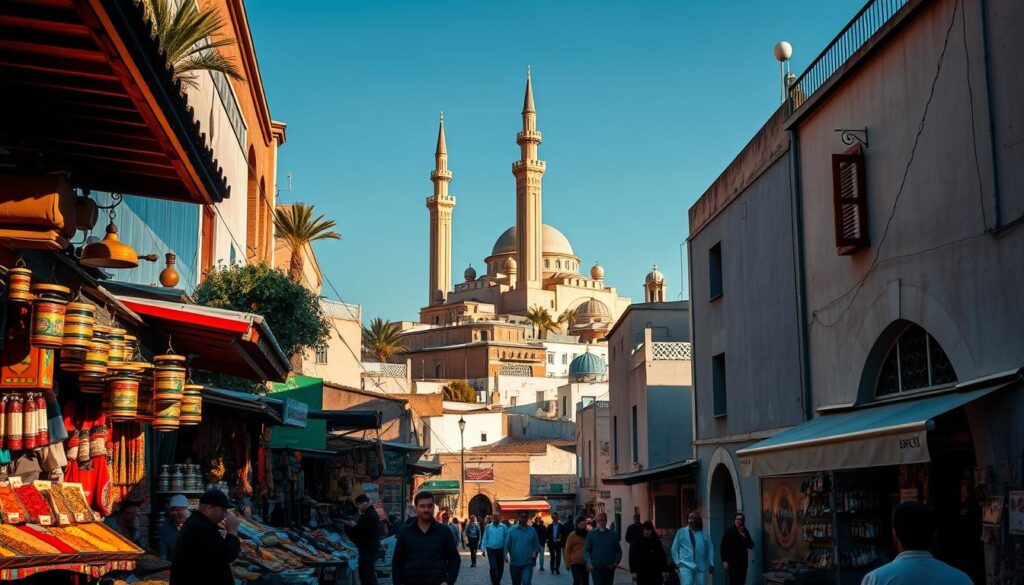
Medina and Market Shopping Gear
Shopping in Morocco’s medinas and markets is an experience in itself. Here are some tips to make the most of it:
Bargaining Preparations
Understanding that bargaining is part of the culture can help you enjoy the experience. Researching prices beforehand can give you a good starting point.
Shopping Bags and Space Solutions
Carrying a reusable shopping bag can be very handy, as you never know what treasures you might find. Also, consider packing clothes with versatile storage options.
Comfort Items for Busy Markets
Comfortable shoes and clothing can make a big difference when spending hours exploring markets and medinas.
| Item | Purpose | Tips |
|---|---|---|
| Navigational App | Helps in navigating medinas and streets | Download offline maps for better functionality |
| Daypack | Carries essentials during the day | Choose one that is comfortable and secure |
| Reusable Shopping Bag | For carrying purchases | Foldable bags are convenient for packing |
Desert Adventure Packing List
Morocco’s Sahara Desert beckons with its golden dunes, but a successful desert adventure starts with the right packing list. The Sahara Desert is known for its extreme temperatures, vast expanses of sand, and unique cultural experiences.
Sahara-Specific Clothing
When packing for the Sahara, it’s essential to consider clothing that protects against the harsh desert environment. Sun protection garments are a must, including lightweight, breathable clothing that covers your skin, such as long-sleeved shirts and pants.
Sun Protection Garments
Opt for clothing with a UPF (Ultraviolet Protection Factor) rating to ensure you’re protected from the sun’s strong rays. A scarf or bandana can also be useful for protecting your neck and face.
Evening Temperature Drops
Although the Sahara is hot during the day, temperatures can drop significantly at night. Pack warm layers for the evenings, such as a fleece or a light jacket, to stay comfortable.
Traditional Desert Wear Options
Consider incorporating traditional Moroccan clothing, like a djellaba, into your packing list. It’s not only culturally immersive but also practical for desert conditions.
Desert Comfort and Safety Items
Beyond clothing, there are several items to pack for comfort and safety in the Sahara. Hydration solutions are critical, including a refillable water bottle and possibly a water purification system.
Hydration Solutions
Staying hydrated is crucial in the desert. Consider packing electrolyte-rich drinks or tablets to help maintain your body’s electrolyte balance.
Sand Protection Gear
Protecting yourself from the sand is vital. Goggles can shield your eyes, while a face mask can protect against sand inhalation during sandstorms.
Overnight Camping Essentials
If you plan on camping, don’t forget to pack camping gear, including a tent, sleeping bag, and sleeping mat, designed for desert conditions.
By carefully considering your packing list for the Sahara Desert, you can ensure a safe, enjoyable, and memorable desert adventure in Morocco.
Coastal and Mountain Region Necessities
Morocco’s diverse geography offers a range of experiences, from coastal relaxation to mountain adventures. When visiting the coastal regions and the Atlas Mountains, it’s crucial to pack accordingly to make the most of your trip.
Beach and Coastal Packing Tips
The coastal areas of Morocco, such as Essaouira and Taghazout, are known for their beautiful beaches and water sports. To enjoy these activities, you’ll need to pack the right gear.
Beachwear Considerations
Pack comfortable swimwear and consider the local culture when choosing your beach attire. A lightweight, quick-drying cover-up is a good idea for visits to more conservative areas.
Water Activity Gear
If you plan to engage in water activities like surfing or kitesurfing, bring your own equipment or plan to rent it locally. Don’t forget waterproof sunscreen and a beach towel.
Coastal Town Essentials
For exploring coastal towns, pack comfortable walking shoes and sun protection, including a hat and sunglasses.
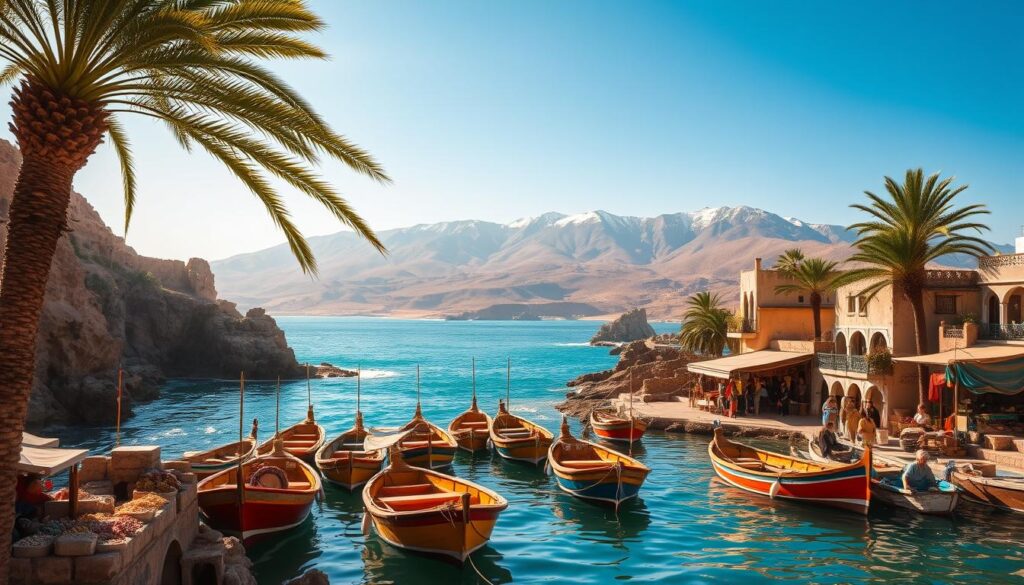
Atlas Mountains Gear
The Atlas Mountains offer a different set of adventures, including hiking and exploring traditional Berber villages. Your packing list should reflect the activities you have planned.
Hiking Equipment
For hiking, you’ll need sturdy hiking boots, layers for changing weather, and a backpack with essentials like water and snacks.
Weather Protection
The weather in the Atlas Mountains can be unpredictable. Pack waterproof clothing and warm layers for cooler evenings.
Altitude Considerations
If you plan to trek to higher altitudes, consider altitude sickness prevention measures and pack accordingly.
| Region | Essential Items | Activities |
|---|---|---|
| Coastal | Swimwear, Waterproof Sunscreen, Beach Towel | Swimming, Surfing, Beach Relaxation |
| Atlas Mountains | Hiking Boots, Layers, Backpack | Hiking, Trekking, Village Exploration |
Health and Wellness Supplies
To make the most of your Moroccan adventure, don’t overlook the importance of health and wellness supplies in your packing list. Ensuring you’re well-prepared with the right health and wellness products can significantly enhance your travel experience.
Essential Medications and First Aid
Packing the right medications and first aid supplies is crucial for addressing any health issues that may arise during your trip.
Prescription Medications
Travelers should ensure they have an adequate supply of any prescription medications, along with a copy of their prescription and a letter from their doctor, especially if the medication is controlled or injectable.
Over-the-Counter Essentials
In addition to prescription medications, consider packing over-the-counter (OTC) essentials such as pain relievers, antihistamines, and antacids to help manage common travel discomforts.
First Aid Kit Components
- Band-Aids and bandages
- Antiseptic wipes and ointment
- Pain and fever reducers
- Antihistamines for allergic reactions
- Any personal medications or supplies
Hygiene and Sanitation Products
Maintaining personal hygiene is vital, especially when traveling. Pack a selection of hygiene and sanitation products to keep you feeling fresh and healthy.
Toiletry Essentials
Include toothbrush, toothpaste, and any personal hygiene items you use daily. Consider travel-sized toiletries to save space in your luggage.
Sanitation Items
Hand sanitizer, moist towelettes, and biodegradable soap are useful for maintaining hygiene, especially when access to clean water is limited.
Women-Specific Considerations
For female travelers, it’s advisable to pack an adequate supply of sanitary products, as they may be harder to find or different from what you’re used to in Morocco.
By being prepared with the right health and wellness supplies, you can enjoy your trip to Morocco with peace of mind, knowing you’re equipped to handle any minor health issues that may arise.
Electronics and Photography Equipment
To fully capture the beauty of Morocco, from the bustling medinas to the serene deserts, having the appropriate electronics and photography equipment is crucial. Morocco offers a diverse range of landscapes and cultural experiences that are worth capturing.
Power Adapters and Charging Solutions
Morocco uses Type C and E power sockets, with a standard voltage of 220V. It’s essential to pack a universal power adapter to keep your devices charged.
Moroccan Outlet Types
The most common outlet types in Morocco are Type C and E. Ensure your power adapter is compatible with these types to avoid any inconvenience.
Portable Power Options
A portable power bank is a lifesaver, especially when you’re exploring remote areas with limited power outlets. Look for a high-capacity power bank that can charge your devices multiple times.
Photography Gear for Morocco’s Diverse Landscapes
Morocco’s diverse landscapes, from the Sahara Desert to the Atlas Mountains, offer endless photography opportunities. To capture these moments, you’ll need the right photography gear.
Camera Protection in Varied Environments
Protecting your camera from the elements is crucial, especially in harsh desert or coastal environments. Consider using a camera rain cover or a protective case to safeguard your equipment.
Lens Recommendations
A versatile lens kit is essential for capturing Morocco’s diverse landscapes. A combination of a wide-angle lens and a telephoto lens will allow you to capture the vast desert landscapes and distant mountain ranges.
| Lens Type | Use Case | Recommended Focal Length |
|---|---|---|
| Wide-angle lens | Capturing vast landscapes | 10-22mm |
| Telephoto lens | Capturing distant subjects | 70-200mm |
| Standard zoom lens | Everyday shooting | 24-70mm |
Communication Devices and Apps
Staying connected during your trip to Morocco is vital for navigation, communication, and safety. Consider the following options for staying connected.
SIM Cards and Phone Plans
Purchasing a local SIM card or portable Wi-Fi hotspot can provide you with affordable data and voice services. Major telecom operators in Morocco offer various plans that cater to tourists.
Useful Travel Apps for Morocco
Several travel apps can enhance your experience in Morocco, including navigation apps like Google Maps, translation apps like Google Translate, and cultural guides like Mauritania Travel Guide.
- Google Maps for navigation
- Google Translate for language assistance
- Mauritania Travel Guide for cultural insights
By being prepared with the right electronics and photography equipment, you can fully immerse yourself in Morocco’s diverse cultures and landscapes, capturing memories that will last a lifetime.
What Not to Bring to Morocco
When traveling to Morocco, it’s crucial to be mindful of what you pack to ensure a respectful and enjoyable trip. Morocco has a rich cultural heritage and specific laws that travelers should be aware of to avoid any issues during their visit.
Cultural Sensitivity Considerations
Morocco is a conservative country with strong cultural and religious traditions. Being respectful of local customs is essential to a positive experience.
Inappropriate Clothing Items
Packing clothing that is too revealing or provocative can attract unwanted attention and be considered disrespectful. Opt for modest clothing that covers your shoulders and knees, especially when visiting mosques or rural areas.
Prohibited Items
Certain items are strictly prohibited in Morocco, including pornographic materials and drugs not prescribed by a doctor. Bringing these items can lead to severe legal consequences.
| Prohibited Item | Reason |
|---|---|
| Pornographic Materials | Morocco has strict laws against obscene materials. |
| Illegal Drugs | Severe legal penalties, including imprisonment. |
Unnecessary Items That Waste Space
Some items are readily available in Morocco, making them unnecessary to pack.
Readily Available Products in Morocco
Toiletries, cosmetics, and basic medications are widely available in Moroccan cities and towns. You can also find a variety of local handicrafts and products that might be of interest.
Climate-Inappropriate Items
Morocco’s climate varies significantly from the coast to the desert. Avoid packing heavy winter clothing unless you plan to visit the Atlas Mountains during the winter.
By being mindful of what you bring to Morocco, you can ensure a more enjoyable and respectful trip. Remember, the key to a successful journey is preparation and an understanding of the local culture and laws.
Packing Strategies and Organization Tips
A well-planned packing strategy can make all the difference in your Moroccan journey. Efficient packing is crucial for a comfortable and stress-free trip, allowing you to enjoy the diverse experiences Morocco has to offer without the burden of unnecessary luggage.
Luggage Recommendations
When it comes to luggage, the choice between a suitcase and a backpack depends on your travel plans and personal preferences.
Suitcase vs. Backpack Considerations
A suitcase is ideal for urban explorations where you have access to paved roads and transportation. On the other hand, a backpack is more suitable for desert adventures or hiking in the Atlas Mountains.
Size and Weight Limitations
It’s essential to check with your airline for size and weight limitations to avoid any additional fees. Consider packing lightweight, versatile clothing that can be easily mixed and matched.
Packing Techniques for Efficiency
To maximize your luggage space, employ efficient packing techniques.
Space-Saving Methods
Rolling your clothes instead of folding them can save a significant amount of space. Use packing cubes or compression bags to keep your belongings organized and compress your clothing to make the most of your luggage space.
Organization Systems
Keep your essentials, such as passport, phone charger, and medications, in an easily accessible place. Use pockets and compartments in your luggage to organize your items, making it easier to find what you need quickly.
By choosing the right luggage and employing efficient packing techniques, you can ensure a more enjoyable and stress-free trip to Morocco. Remember, the key to successful packing is planning and flexibility.
Conclusion
As you prepare for your trip to Morocco, remember that being well-prepared is key to a successful and enjoyable journey. By following the Morocco travel tips outlined in this article, you’ll be able to pack efficiently and make the most of your time exploring this incredible country.
From understanding Morocco’s diverse climate and regions to packing the right clothing and gear, we’ve covered the essentials to ensure you’re ready for whatever your adventure brings. Whether you’re exploring the bustling cities, trekking through the Atlas Mountains, or venturing into the Sahara Desert, being prepared will enhance your experience and allow you to fully immerse yourself in the local culture.
By incorporating these packing for Morocco tips into your travel plans, you’ll be well on your way to creating unforgettable memories. So, take a deep breath, pack your bags, and get ready to embark on an unforgettable journey through Morocco. With the right mindset and preparation, you’re sure to have a truly enriching experience in this captivating country.
FAQ
What are the essential documents required for traveling to Morocco?
Travelers to Morocco need a valid passport with at least six months’ validity, and depending on their nationality, a visa might be required. It’s also recommended to have travel insurance documents and photocopies of important documents like passports and visas.
What type of clothing is appropriate for visiting Morocco?
Morocco is a conservative country, so it’s advisable to pack modest clothing that covers shoulders and knees, especially when visiting religious sites. Both men and women should dress respectfully to avoid drawing unnecessary attention.
What are the best practices for packing for Morocco’s diverse climates?
Morocco’s climate varies significantly across regions and seasons. For summer, pack lightweight and breathable clothing, while for winter, include warm layers for cooler mornings and evenings. For desert trips, consider sun-protective clothing and for mountain regions, pack warm and waterproof gear.
Are there any specific health and wellness supplies that I should pack for Morocco?
Yes, it’s recommended to pack prescription medications, a first aid kit with essentials like band-aids, antiseptic wipes, and any personal medications, as well as hygiene products such as hand sanitizer and toilet paper.
What electronics and photography equipment should I bring to Morocco?
For Morocco, you’ll need a universal power adapter for charging your devices, as the outlets are different. For photography, consider bringing a camera with good battery life, lens protection, and a portable charger. For staying connected, a local SIM card or an international phone plan can be useful.
What are some packing strategies for a trip to Morocco?
To pack efficiently for Morocco, consider using a luggage that is versatile and comfortable to carry, like a backpack or a suitcase with multiple compartments. Use packing cubes or roll your clothes to save space, and keep essential items like your passport and phone charger easily accessible.
What items should I avoid bringing to Morocco?
It’s best to avoid bringing clothing that is too revealing or offensive materials that could be considered disrespectful of local customs. Additionally, be mindful of prohibited items like certain medications or restricted goods, and avoid packing items that are readily available in Morocco to save space.
How can I stay safe while traveling in Morocco?
To stay safe in Morocco, be aware of your surroundings, especially in crowded areas like medinas and markets. Use reputable transportation services, keep your valuables secure, and stay informed about local conditions.
Can I use my credit/debit cards in Morocco?
While many places in Morocco, especially tourist areas, accept credit and debit cards, it’s still a good idea to have some local currency, Moroccan dirhams, for smaller purchases and at local markets. Inform your bank of your travel plans to avoid any transaction issues.
